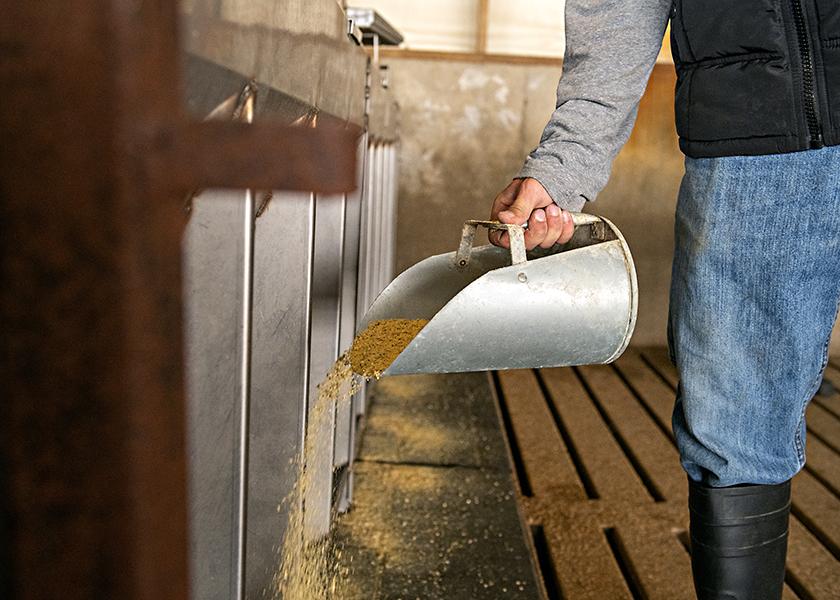Risk and Mitigation of Foot-and-Mouth Disease Virus in Feed

Foot-and-mouth disease virus (FMDV) can be introduced to pigs through the importation of contaminated feed products, confirms a new study performed by researchers from USDA ‘s Agricultural Research Service at Plum Island and funded by the Swine Health Information Center (SHIC), the National Pork Board and USDA ARS.
But the researchers, led by Dr. Carolina Stenfeldt and Dr. Jonathan Arzt note that many conditions must be met for transmission of viral diseases through pig feed to occur. Understanding these conditions is critical in order to quantitate the associated risk as well as consider preventive measures, SHIC reports.
Researchers point out these important criteria that must be met:
1. The feed must first become contaminated with the virus.
2. The virus in the feed must then remain viable until it is fed, and the quantity of infectious virus must be sufficient to surpass the minimum infectious dose.
3. Finally, at least one pig must consume enough virus to become infected over one or multiple feedings.
In the study, these requirements were considered in the context of pathogen incursion occurring before or during transoceanic transport. The combined output from the current investigation demonstrated that the likelihood of all of these conditions being met will depend on specific feed ingredient (and any added mitigants), strain of the virus and environmental conditions during storage and transport of the feed, SHIC reports.
“The combined output of this investigation demonstrated that FMDV can remain viable as a contaminant of pig feed products through 37 days. In addition to expected variation associated with storage temperature, there was also substantial variability in viability of different FMDV strains in different feed matrices,” the authors wrote.
FMDV exposure by feeding of experimentally contaminated feed to pigs caused FMD with dose dependency, the report said. The minimum dose required to cause FMD varied between virus strains and with experimental design. In addition, the probability of infection increased when a given dose of virus was divided across three consecutive feedings, likely due to increased exposure time.
"While comparable research investigating the potential biosecurity risks of imported feed exists for other viral pig pathogens (Dee et al., 2018; Niederwerder et al., 2020; Niederwerder et al., 2019), this is the first comprehensive evaluation of the risk of FMDV infection of pigs through ingestion of contaminated feed under controlled experimental conditions," wrote the authors.
More from Farm Journal's PORK:
Pork Leaders to Stop Importing Unprocessed Feed Ingredients from FAD Countries
Do You Know the Signs of African Swine Fever?







